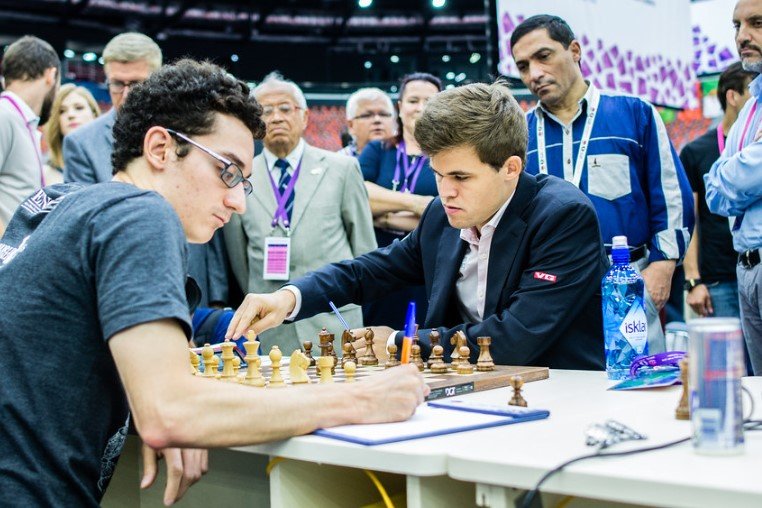World Champion Gukesh Dommaraju’s quarter-final clash with Fabiano Caruana at the Weissenhaus leg of the Freestyle Chess Grand Slam Tour ended in a swift and surprising fashion. After suffering a defeat in the first game, Gukesh resigned in just 18 moves in the second, effectively conceding the match. Magnus Carlsen, the former world champion, believes the decision was a practical one, given the circumstances.
A One-Sided Affair in the Quarter-Finals
Gukesh’s performance at Weissenhaus has been far from dominant. Despite securing a quarter-final spot as the eighth seed, his struggles continued as he fell to Caruana in consecutive games. The second encounter ended so quickly that it raised eyebrows, but Carlsen dismissed any controversy, labeling it a logical choice.
“I think in these mini-matches a lot will hinge on a single game,” Carlsen told Take Take Take. “Yesterday’s game could have gone either way, and today, of course, it was never very likely that Gukesh was going to come back. Honestly, I think he made a kind of prudent decision just resigning when he realized that he was not going to make a comeback.”
The defeat extends Gukesh’s winless streak at Weissenhaus, where he also suffered losses to Alireza Firouzja and Carlsen himself in the rapid seeding section.

Why Did Gukesh Resign So Early?
Resigning in 18 moves is rare at the elite level, especially for a world champion. But in this case, the situation left little room for optimism.
- Gukesh was already down a game, meaning he needed a win to stay alive.
- His position deteriorated rapidly, leaving no viable counterplay.
- Against a player of Caruana’s caliber, prolonging the game could have been futile.
Carlsen suggested that Gukesh recognized the inevitability of the outcome and chose to conserve energy rather than fight a hopeless battle.
Carlsen Cruises into the Semi-Finals
While Gukesh exited the tournament, Carlsen had no trouble in his own quarter-final. Playing Black, he dispatched Nodirbek Abdusattorov, securing a spot in the semis. The Norwegian star has been in strong form, proving why he remains a dominant force in chess despite relinquishing the world title.
Gukesh’s early exit raises questions about his ability to handle the immense pressure that comes with being world champion. At just 18, he still has plenty of time to grow, but the Weissenhaus event has been a sobering reminder of the challenges that lie ahead.
